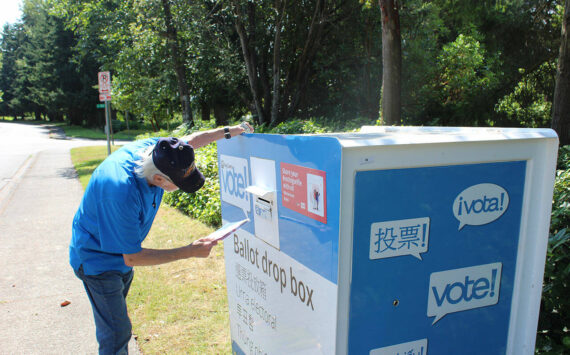A resolution that directs City Manager Eric Anderson to develop a balanced budget through the 2007-2008 biennium and report on budget recommendations by mid-November was approved Aug. 23 by members of the Tacoma City Council.
According to the resolution, the City Manager’s approach to the short-term budget shortfall must eliminate duplication, simplify processes, and redesign the city government to more efficiently meet taxpayers’ needs.
The resolution comes at a time when councilmembers and Mayor Bill Baarsma agree on the necessity of balancing the citys budget, but remain undecided on strategies to achieve that goal.
A resolution to balance the budget is not something we generally do, said Mayor Bill Baarsma, during a study session held prior to the council meeting. But its something that makes a lot of sense in order to make the statement that balancing the budget is something we want the city manager to do.
That said, Andersons challenge over the next three months involves balancing a $10 million shortfall projected for 2006, and a long-term cumulative deficit projected to reach $24 million by 2010.
On Aug. 9, Anderson unveiled a long-term vision to balance the citys budget through 2008 by eliminating property and business and occupation (B&O) taxes, reducing the utility tax, introducing user fees for emergency and library services, and avoiding the long-term cumulative deficit.
Andersons plan is twofold.
In the short-term, he recommends permanent adjustments of $10 million to balance the budget through 2006, and the elimination of a $14.5 million projected deficit for the 2007/2008 biennium. Those adjustments would be made through the Breakthrough Change Initiative introduced by former city manager Jim Walton, who retired June 30. That initiative is designed to reduce expenses by making structural changes in the way the city is organized and operated, in areas that include employee compensation and benefits, organizational restructuring, risk management, and vehicles and equipment.
Andersons long-term plan, however, has received the most attention — largely because it calls for elimination of property and B&O taxes, reduction of the utility tax, and introduction of monthly user fees for police, fire, and library services. Its a plan that would also require state legislative approval and public support.
Fees would be based upon either building occupancy or property value, applicable to all property owners — including hospitals, non-profit organizations, schools, ports, and governments (but not houses of worship), and charged monthly in an itemized invoice.
Eliminating B&O taxes would give Tacoma a competitive advantage in luring news businesses, and help grow start-up and neighborhood businesses.
Still, user fees for police, fire, and library services would have to meet or exceed $150 million — the revenue currently generated from the citys B&O and property taxes — to pencil out, and exceed that amount in order to gain ground on the projected deficit.
During the study session on Aug. 16, Anderson proposed a plan to offer incentives to approximately 125 city employees who elected to retire early. Though Anderson did not elaborate on the specifics of the incentives, he did say that such a move would cut the citys payroll and save money in the long-term. The early retirement plan would only apply to general government employees; police and fire employees have their own retirement fund, and Tacoma Public Utilities employees are paid out of utility fees instead of the general fund.
Wages and benefits account for approximately 65 percent of the $356 million 2005-2006 general fund budget Early retirement incentives, said Anderson, would be paid for by eliminating positions and cutting costs in the long-term.
During yesterdays study session, Anderson communicated a preference for administering police, fire, and library service fees based upon property value, rather than occupancy. Basing the fees on occupancy would make it difficult for the city to maintain accurate files. According to Anderson, fees based upon occupancy would also create a new bureaucracy.
Anderson also expressed concern over the impact user fees would have on renters in Tacoma — specifically, the possibility that landlords would pass those fees along to renters.
Council support for Andersons plan is mixed.
Councilmember Mike Lonergan has said the plan is an idea whose time has not come, and has suggested that the city enlist help from legislators in Olympia, as well as the Association of Washington Cities (AWC) — particularly because a number of cities across the state face the same budget problems. During yesterdays study session, Lonergan commented, Im in support of this resolution. The most important job of the city manager is to balance the budget for 2006. But I dont support the idea of going down this road [of user fees]. We ought to work with AWC and not make it a Tacoma focus where we hang our hats on this plan.
Also discussed during yesterdays study session was the need for a public referendum to gauge support of Andersons plan.
Sooner than later, we need a referendum from Tacoma residents to see if we should move in the direction [of user fees], said Baarsma.
For a copy of City Manager Eric Andersons State of the Budget presentation, visit http://www.ci.tacoma.wa.us/cronews/BudgetPresentation_Aug92005.pdf.







